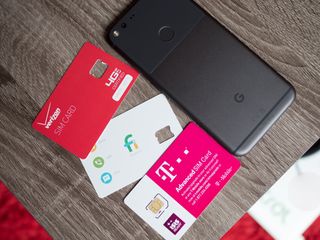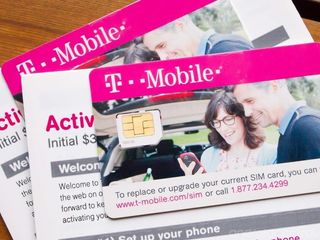The downsides to using an alternative carrier

The company that provides your cellular service has a single goal in mind — to make money. Achieving that goal in 2017 means offering features you want at a price you are willing to pay, and guaranteeing a certain quality level to that service. Some of us pay more for that guarantee, or more for an increased capacity to enjoy wireless service, but for the most part the US cellular market is fairly static. Those of us paying close attention to relatively small changes in service get excited by the theater of competitive marketing, but overall the "big four" have been mostly the same for years.
This is why there are frequently pockets of excitement surrounding "alternative" carriers. Sometimes we call them pre-paid providers, sometimes we call them MVNOs, but they're all basically the same thing. These alternatives are exercises in securing users willing to sacrifice features for a lower monthly rate, but in recent years the marketing around these companies has become so good it's often difficult to see what features you are losing.
How these 'alternatives' work

When land line telephones were in their infancy, service providers would sell more lines than they could support in an area. It was highly unlikely that everyone would pick up the phone at the same time to make a call, so there was always part of the network left unused. In selling a fraction of those unused lines, the phone company could make more money without expanding service.
Just like everything else, read the fine print first.
A similar technique is used in the cellular world today. Many people pay the "big four" for more than they actually use, either as a way of ensuring there's never a surprise overage fee at the end of the month or because a lower alternative isn't available. This means there's a portion of the network almost never being used, even when selling over the theoretical capacity. This leftover network is sold as a bulk service to a Mobile Virtual Network Operator (MVNO for short) which turns around and sells this service just a hair above the cost of the bulk rate offered by the carrier.
The benefit to users is clear. It's a noticeably cheaper cellular service that can claim to be "just as good" most of the time, and for people on strict budgets or those who view cellular service as a luxury it's a good way to save money. This smaller company makes a reasonable profit from reselling leftover network, and the host company makes a reasonable profit with almost no additional work on its end. Everyone wins, at least in theory.
What you sacrifice for that lower rate

There's gotta be a catch, right? There's always a catch. With MVNOs, the catch is all in the quality of service. That can mean a couple of different things, and each of them are important to consider when choosing whether it's actually worth it to spend less.
For starters, the service you get from an MVNO is never "just as good" as the host service. The alternative option will almost always be slightly slower when using the 4G LTE, and in many cases the performance difference is more than just a 1-2mbps difference. The host carrier will always prioritize the service of their regular customers over the other users on the network, because they're paying for the privilege.
Be an expert in 5 minutes
Get the latest news from Android Central, your trusted companion in the world of Android
The prioritization also happens when the network is completely saturated, which doesn't happen terribly often in most places. Your cellular network is usually only fully loaded when a tremendous amount of people in a single unplanned place start using their phone all at once. For example, if a natural disaster occurs and suddenly everyone is making calls and broadcasting video streams all at once, the host network is designed to ensure its primary customers have service no matter what. The same can not be said of your average MVNO. In fact, most of these budget service providers include this clause in the Terms of Service:
WE MAY LIMIT, THROTTLE, SUSPEND OR TERMINATE YOUR SERVICE OR AGREEMENT WITHOUT NOTICE AT ANY TIME AND FOR ANY REASON
For anyone using cell service as their one and only phone line, that kind of planned instability invites catastrophe. But the specter of what might happen isn't as concerning as not being able to hold the company responsible for failing to deliver the service promised in the advertising. If you call Verizon Wireless after an outage, you can ask for a credit for the time you were not able to use your service. If you call an MVNO and ask for the same, you will frequently be reminded of the section of Terms and Conditions that reads:
You agree we are not liable for problems relating to Service availability or quality.
Which brings us to the final problem with 'alternative' carriers — good old fashioned customer service. The whole point of an MVNO is to be able to offer you discounted service because the operating costs are much lower, and that includes customer service. The "big four" are available to you 24/7/365, usually through phone and email and even text chat on each of the websites. In some cases, you can even get support through Twitter and Facebook. You won't find the same level of support through an alternative carrier, because it's expensive to offer that level of support all the time.
Budget carriers can be expensive in other ways

As long as you know what you're getting into when you sign up for service, there's nothing wrong with saving money by going with a cheaper service provider. There are plenty of perfectly valid reasons to need or want to save money on your phone bill, and many of these alternative carriers offer that ability to save as the primary feature.
Just like everything else, read the fine print first. You always give up something when switching from a company that manages its own network to a company that resells a product as its own, and in most cases the cheaper you go the more you give up. If you're using that service as your only way to communicate with the rest of the world, giving up the guarantee that you'll even have service when you need it can be a real hassle.

